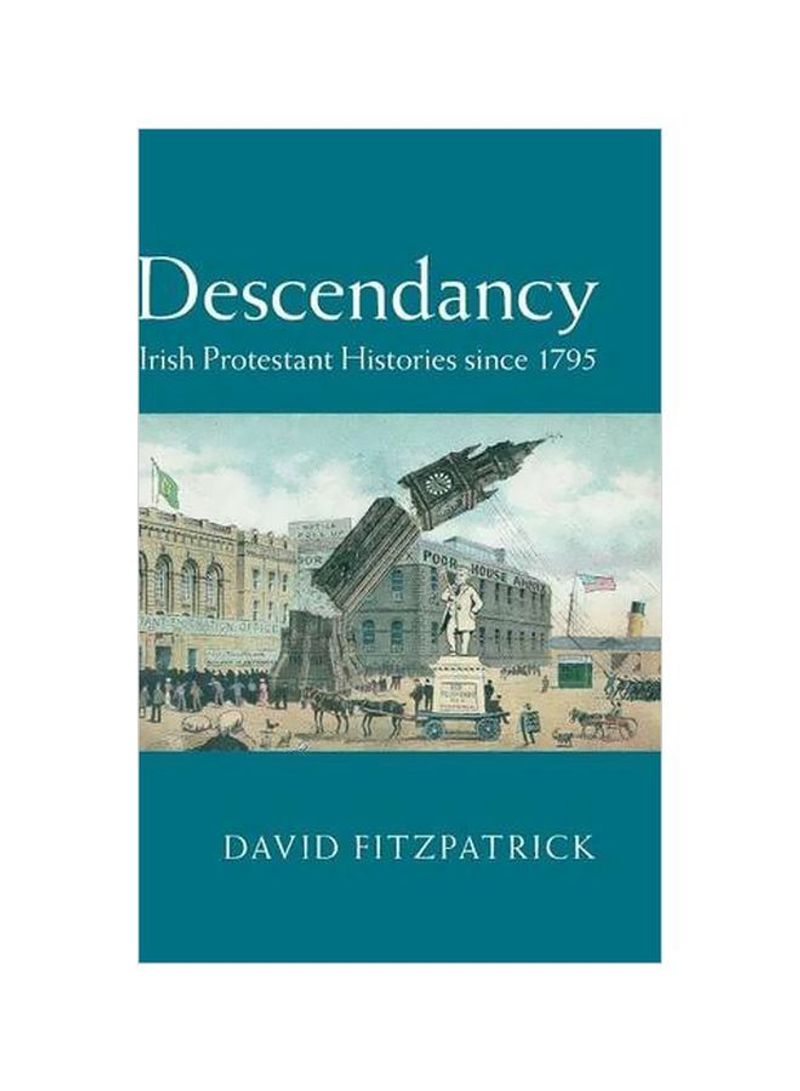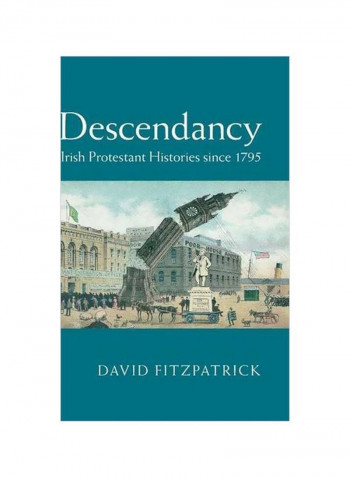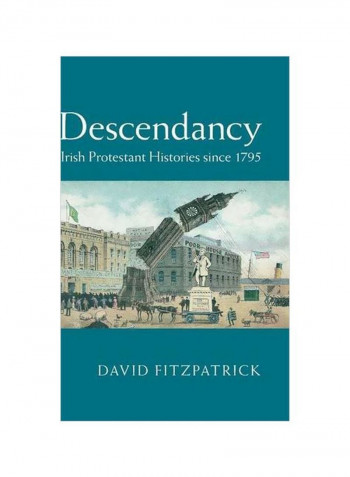Descendancy: Irish Protestant Histories Since 1795 Hardcover
Recommend
Sort by
Rating
Date
Specifications
Author 1
David Fitzpatrick
Book Description
This book examines Protestant loss of power and self-confidence in Ireland since 1795. David Fitzpatrick charts the declining power and influence of the Protestant community in Ireland and the strategies adopted in the face of this decline, presenting rich personal testimony that illustrates how individuals experienced and perceived 'descendancy'. Focusing on the attitudes and strategies adopted by the eventual losers rather than victors, he addresses contentious issues in Irish history through an analysis of the appeal of the Orange Order, the Ulster Covenant of 1912, and 'ethnic cleansing' in the Irish Revolution. Avoiding both apologetics and sentimentality when probing the psychology of those undergoing 'descendancy', the book examines the social and political ramifications of religious affiliation and belief as practised in fraternities, congregations and isolated sub-communities.
ISBN-13
9781107080935
Language
English
Publisher
Cambridge University Press
Publication Date
04 Mar 2015
Number of Pages
282
Editorial Review
Historians sometimes explain the governance of eighteenth-century Ireland using the term Protestant Ascendancy. This compelling and accessible new book by David Fitzpatrick charts the decline in Protestant power afterwards, beginning in 1795 when the Orange Order formed. This was no uniform plunge into powerlessness. By exploring different facets of Protestantism, Fitzpatrick expertly reveals the dimensions of descent.' Allan Blackstock, University of Ulster 'David Fitzpatrick brings his hallmark qualities of rigour, lucidity and imagination to these essays, brilliantly illuminating a neglected theme through important new evidence and careful exegesis. This collection will confirm his standing as one of the most gifted, original and influential historians of modern Ireland.' Alvin Jackson, University of Edinburgh 'The brilliantly titled Descendancy is a necessary book. Irish Protestantism has been more often stereotyped than understood. David Fitzpatrick teases out the complex, fraying strands of Protestant denominational and communal life in a way that clarifies the sectarian dimension of Irish politics from 1800 to today. His work combines meticulous micro-history, analytical sweep, a cold eye, and an edge of controversy.' Edna Longley, Queen's University Belfast 'A crisp, original discussion of a set of topics rarely dealt with by Irish historians. Fitzpatrick's work has the great virtue of providing thought-provoking suggestions that encourage balanced discussion rather than old-school name-calling.' Donald H. Akenson, Queen's University, Ontario 'Fitzpatrick's analysis of the available evidence is an important contribution to scholarship, and to historic understanding of a highly contested series of events which still stir emotions and raise ethical issues.' Dr Maurice Hayes, Irish Independent 'This important book examines the roots of sectarianism in the context of the declining Protestant population, who formed a 'non-ascendancy' quite separate from the landed Anglican elite ... Fitzpatrick combines the sophisticated analysis of qualitative sources with an elegant handling of quantitative data. He dissects complex and ambiguous evidence with thoroughness, clarity and empathy.' Eugenio Biagini, Irish Times "Historians sometimes explain the governance of eighteenth-century Ireland using the term Protestant Ascendancy. This compelling and accessible new book by David Fitzpatrick charts the decline in Protestant power afterwards, beginning in 1795 when the Orange Order formed. This was no uniform plunge into powerlessness. By exploring different facets of Protestantism, Fitzpatrick expertly reveals the dimensions of descent." Allan Blackstock, University of Ulster "David Fitzpatrick brings his hallmark qualities of rigour, lucidity and imagination to these essays, brilliantly illuminating a neglected theme through important new evidence and careful exegesis. This collection will confirm his standing as one of the most gifted, original and influential historians of modern Ireland." Alvin Jackson, University of Edinburgh "The brilliantly titled Descendancy is a necessary book. Irish Protestantism has been more often stereotyped than understood. David Fitzpatrick teases out the complex, fraying strands of Protestant denominational and communal life in a way that clarifies the sectarian dimension of Irish politics from 1800 to today. His work combines meticulous micro-history, analytical sweep, a cold eye, and an edge of controversy." Edna Longley, Queen's University Belfast "A crisp, original discussion of a set of topics rarely dealt with by Irish historians. Fitzpatrick's work has the great virtue of providing thought-provoking suggestions that encourage balanced discussion rather than old-school name-calling." Donald H. Akenson, Queen's University "Fitzpatrick's analysis of the available evidence is an important contribution to scholarship, and to historic understanding of a highly contested series of events which still stir emotions and raise ethical issues." Dr Maurice Hayes, Irish Independent "This important book examines the roots of sectarianism in the context of the declining Protestant population, who formed a 'non-ascendancy' quite separate from the landed Anglican elite ... Fitzpatrick combines the sophisticated analysis of qualitative sources with an elegant handling of quantitative data. He dissects complex and ambiguous evidence with thoroughness, clarity and empathy." Eugenio Biagini, Irish Times



